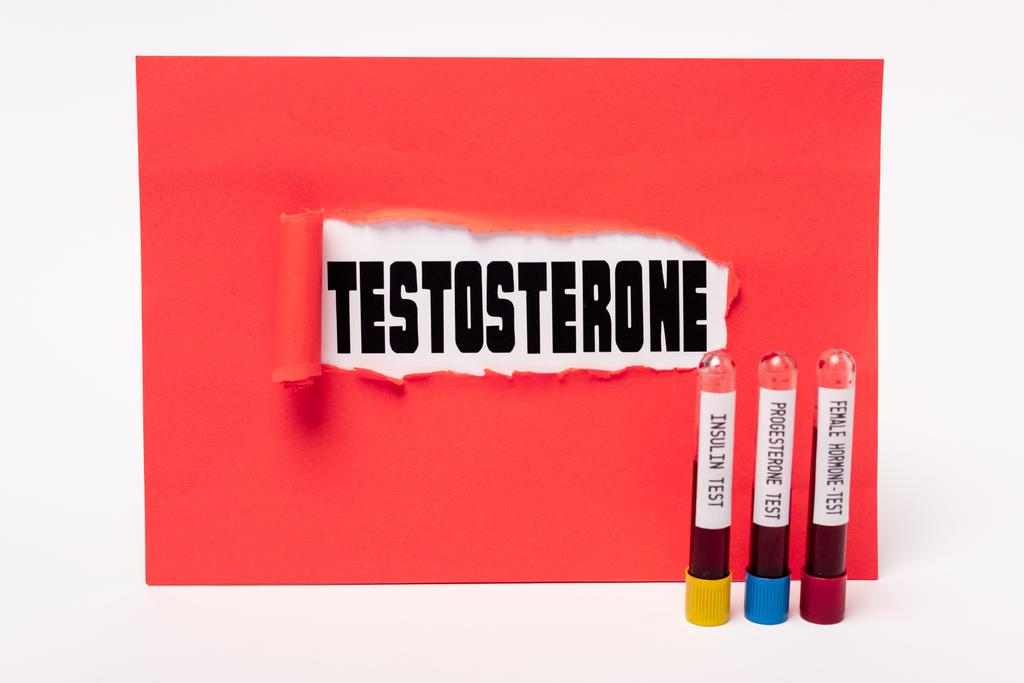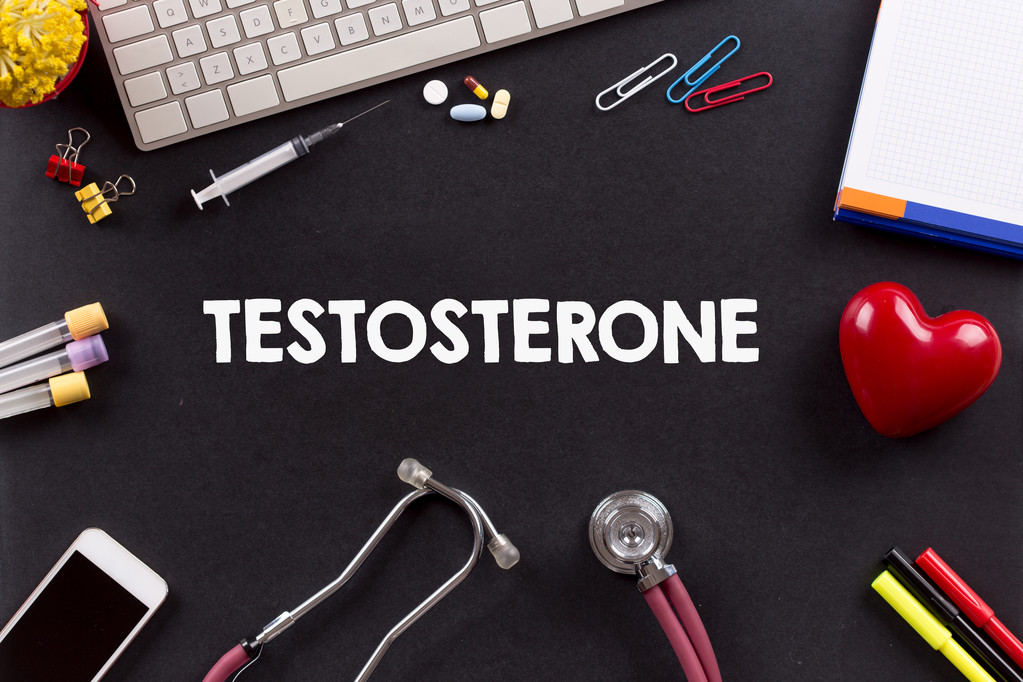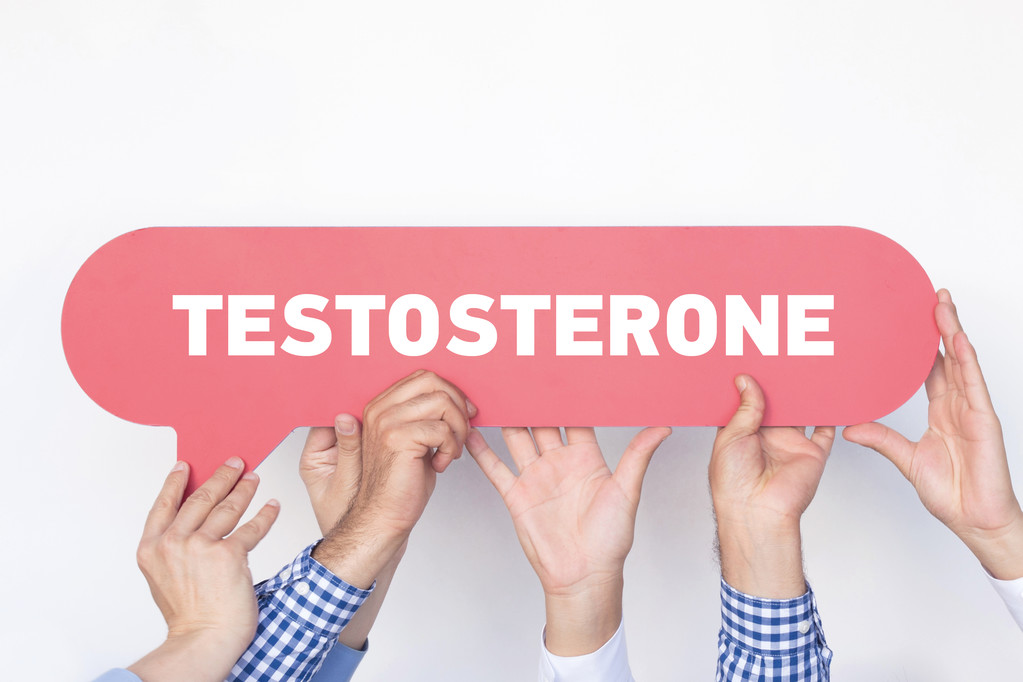Testosterone, often associated with masculinity, plays a pivotal role far beyond just male health; it’s fundamental to overall well-being for both men and women. This hormone influences a myriad of bodily functions, from maintaining muscle mass to regulating mood. The concept of hormonal balance is crucial, as even slight imbalances can significantly impact one’s quality of life.
Understanding the testosterone effect is about recognizing its extensive influence on our physical, mental, and emotional states, underscoring the importance of maintaining optimal levels for a harmonious and healthy life. This article will explore all that you need to know about testosterone and how it impacts your health. Using the remedies provided will help you keep your hormone levels balanced.
What is Testosterone?
Before we delve into the myriad ways testosterone affects well-being, let’s make sure we have a solid understanding of what this hormone actually is. Testosterone is a steroid hormone produced primarily in the testicles of men and, to a lesser extent, in the ovaries of women. It’s also synthesized in small amounts by the adrenal glands in both sexes.

Testosterone belongs to a class of hormones called androgens, which are responsible for the development and maintenance of male characteristics. However, it’s important to note that testosterone is not exclusively a “male” hormone. Women produce it too, albeit in lower quantities, and it plays crucial roles in female physiology as well.
Testosterone levels vary throughout the lifespan and are influenced by factors like age, genetics, health status, and lifestyle habits. In men, testosterone production ramps up during puberty, peaks in early adulthood, and then gradually declines with age – a phenomenon sometimes referred to as “andropause” or “male menopause.”
The hormone exerts its effects by binding to androgen receptors found in various tissues throughout the body. This interaction triggers a cascade of biochemical events that regulate gene expression and cellular function. The widespread distribution of these receptors underscores the systemic impact of testosterone on multiple organ systems.
So, now that we have a basic grasp of testosterone’s identity and modus operandi, let’s explore how this powerful molecule shapes different dimensions of health and well-being.
Testosterone and Physical Health
One of the most well-known functions of testosterone is its role in building and maintaining muscle mass. The hormone stimulates protein synthesis and promotes the growth of skeletal muscle fibers, which is why it’s often associated with strength and athleticism. This anabolic effect is particularly pronounced during puberty, when surging testosterone levels fuel the development of male musculature.
But testosterone’s impact extends far beyond biceps and six-packs. It also plays a key role in bone health, stimulating the production of osteoblasts – cells responsible for bone formation. Adequate testosterone levels help maintain bone mineral density, reducing the risk of osteoporosis and fractures. This is especially important for older men, who are more prone to age-related bone loss.
Testosterone is also involved in the regulation of body composition and metabolism. It promotes the reduction of body fat, particularly visceral fat that accumulates around the abdominal organs. This type of fat is associated with a higher risk of metabolic disorders like insulin resistance and cardiovascular disease. By helping to keep body fat in check, testosterone supports a healthier metabolic profile.
Speaking of cardiovascular health, testosterone has been shown to influence various parameters of heart function. It helps dilate blood vessels, improving blood flow and reducing the workload on the heart. Some studies have also suggested that low testosterone levels may be associated with an increased risk of heart disease, although more research is needed to fully understand this relationship.
Testosterone also has a hand in regulating red blood cell production, a process called erythropoiesis. Higher testosterone levels stimulate the bone marrow to churn out more red blood cells, which can enhance oxygen delivery to muscles and organs. This effect may partly explain why some athletes use testosterone supplements to boost performance, although such practices are generally considered doping and are banned in most sports.
Beyond its direct physiological actions, testosterone may indirectly influence physical health by modulating behaviors and lifestyle factors. For example, men with higher testosterone levels tend to be more physically active and engage in more health-promoting behaviors like exercise and weight training. This could be due to testosterone’s effects on motivation, energy levels, and competitiveness.
Of course, the relationship between testosterone and physical health is complex and multifaceted. While adequate testosterone is generally associated with positive outcomes, excessively high levels can also have detrimental effects. Testosterone abuse, often in the form of anabolic steroid use, has been linked to various health risks including liver damage, cardiovascular problems, and hormonal imbalances.
Moreover, the optimal testosterone range for health may vary from person to person, influenced by individual factors like age, genetics, and overall health status. It’s important to work with healthcare professionals to assess testosterone levels and determine if any interventions are necessary to support physical well-being.
Testosterone and Mental Well-being
While testosterone is often discussed in the context of physical attributes, its influence on mental health and well-being is equally significant. This hormone interacts with the brain in complex ways, shaping cognitive function, emotional regulation, and overall psychological vitality.
One of the most salient mental health effects of testosterone is its impact on mood. Low testosterone levels have been associated with an increased risk of depression and other mood disorders, particularly in older men. This may be due to testosterone’s role in modulating neurotransmitter systems involved in emotional regulation, such as serotonin and dopamine.
Testosterone also influences cognitive function, including memory, attention, and processing speed. Studies have shown that men with higher testosterone levels tend to perform better on certain cognitive tasks, particularly those involving spatial abilities and mathematical reasoning. However, the relationship between testosterone and cognition is not straightforward, and more research is needed to fully elucidate the underlying mechanisms.

In addition to its effects on mood and cognition, testosterone may also impact other aspects of mental well-being, such as self-esteem and confidence. Men with higher testosterone levels often report feeling more assertive, self-assured, and capable of tackling challenges. This could be related to testosterone’s influence on dominance behaviors and its role in mediating social status and hierarchy.
Testosterone has also been implicated in the regulation of stress responses and resilience. Some studies suggest that higher testosterone levels may buffer against the negative effects of stress, enhancing coping abilities and promoting psychological hardiness. This could be due to testosterone’s interactions with the hypothalamic-pituitary-adrenal (HPA) axis, a key system involved in the body’s stress response.
However, it’s important to note that the relationship between testosterone and mental well-being is not always linear or straightforward. Excessively high testosterone levels, often resulting from anabolic steroid abuse, have been linked to increased aggression, impulsivity, and even psychotic symptoms in some cases. This underscores the importance of maintaining testosterone within a healthy range for optimal psychological functioning.
Moreover, the effects of testosterone on mental health may be moderated by various individual and contextual factors. For example, the impact of testosterone on mood and behavior may differ depending on age, personality traits, social environment, and cultural norms. It’s crucial to consider these nuances when exploring the role of testosterone in mental well-being.
As with physical health, assessing and addressing testosterone-related mental health concerns requires a personalized approach. Working with mental health professionals who understand the hormonal underpinnings of psychological well-being can help individuals develop tailored strategies for optimizing testosterone balance and promoting overall mental vitality.
Testosterone and Physical Health
One of the most well-known functions of testosterone is its role in building and maintaining muscle mass. The hormone stimulates protein synthesis and promotes the growth of skeletal muscle fibers, which is why it’s often associated with strength and athleticism. This anabolic effect is particularly pronounced during puberty, when surging testosterone levels fuel the development of male musculature.
Real-life example: Alex, a 17-year-old high school athlete, experienced a significant growth spurt and muscle gain during his teenage years. His coaches were impressed by his rapid physical development, which coincided with the natural rise in testosterone levels during puberty. Alex’s experience highlights the powerful anabolic effects of testosterone during this critical developmental period.

But testosterone’s impact extends far beyond biceps and six-packs. It also plays a key role in bone health, stimulating the production of osteoblasts – cells responsible for bone formation. Adequate testosterone levels help maintain bone mineral density, reducing the risk of osteoporosis and fractures. This is especially important for older men, who are more prone to age-related bone loss.
1# R eal-life example: Michael, a 65-year-old retiree, was diagnosed with osteoporosis after a routine bone density scan. His doctor explained that the age-related decline in testosterone levels may have contributed to his bone loss, and suggested lifestyle changes and hormone replacement therapy to help mitigate further deterioration. Michael’s case underscores the importance of maintaining healthy testosterone levels for bone health in older men.
Testosterone is also involved in the regulation of body composition and metabolism. It promotes the reduction of body fat, particularly visceral fat that accumulates around the abdominal organs. This type of fat is associated with a higher risk of metabolic disorders like insulin resistance and cardiovascular disease. By helping to keep body fat in check, testosterone supports a healthier metabolic profile.
2# Real-life example: Mark, a 50-year-old office worker, struggled with stubborn belly fat despite his efforts to eat healthily and exercise regularly. His doctor suggested checking his testosterone levels, which turned out to be on the lower end of the normal range. After starting testosterone replacement therapy, Mark noticed a gradual reduction in his abdominal fat and an improvement in his overall body composition. This illustrates how optimizing testosterone levels can support healthy body fat distribution and metabolic function.
Speaking of cardiovascular health, testosterone has been shown to influence various parameters of heart function. It helps dilate blood vessels, improving blood flow and reducing the workload on the heart. Some studies have also suggested that low testosterone levels may be associated with an increased risk of heart disease, although more research is needed to fully understand this relationship.
3# Real-life example: David, a 55-year-old businessman, had a family history of heart disease and was proactive about monitoring his cardiovascular health. When his annual check-up revealed low testosterone levels, his doctor explained that this could potentially increase his risk of heart problems. David started testosterone therapy under close medical supervision and noticed improvements in his energy levels and overall sense of well-being. While testosterone is just one piece of the cardiovascular health puzzle, David’s experience highlights the potential benefits of addressing hormonal imbalances for heart health.
Testosterone also has a hand in regulating red blood cell production, a process called erythropoiesis. Higher testosterone levels stimulate the bone marrow to churn out more red blood cells, which can enhance oxygen delivery to muscles and organs. This effect may partly explain why some athletes use testosterone supplements to boost performance, although such practices are generally considered doping and are banned in most sports.
Testosterone Imbalances: Causes and Consequences
Given the wide-ranging effects of testosterone on physical and mental well-being, it’s not surprising that imbalances in this hormone can have significant consequences. Both testosterone deficiency and excess can lead to a constellation of symptoms that impair quality of life and overall health. Let’s take a closer look at the causes and consequences of testosterone imbalances.
Testosterone Deficiency
Testosterone deficiency, also known as hypogonadism, occurs when the body produces insufficient amounts of the hormone. This can be due to various factors, including:
- Age-related decline: As men get older, testosterone levels naturally decrease. This process, sometimes called “andropause,” can lead to symptoms of testosterone deficiency in some men.
- Testicular dysfunction: Conditions that damage the testicles, such as injuries, infections, or tumors, can impair testosterone production.
- Hypothalamic-pituitary disorders: Abnormalities in the brain regions that control testosterone production, such as pituitary tumors or hypothalamic dysfunction, can lead to hypogonadism.
- Chronic illness: Certain chronic diseases, such as obesity, diabetes, and HIV/AIDS, can suppress testosterone levels.
- Medications: Some drugs, including opioids and glucocorticoids, can interfere with testosterone production or action.
The consequences of testosterone deficiency can be wide-ranging and may include:
| Physical Symptoms | Mental/Emotional Symptoms |
|---|---|
| Reduced muscle mass and strength | Depressed mood |
| Increased body fat, especially abdominal fat | Fatigue and low energy |
| Decreased bone density and increased fracture risk | Cognitive difficulties, such as impaired memory and concentration |
| Erectile dysfunction and reduced sexual desire | Reduced self-esteem and confidence |
| Gynecomastia (enlarged breast tissue in men) | Irritability and mood swings |
| Fatigue and reduced physical endurance | Sleep disturbances |
| Hot flashes and sweating | Decreased motivation and apathy |
It’s important to note that not all men with low testosterone experience symptoms, and the severity of symptoms can vary widely among individuals. Moreover, many of these symptoms can also be caused by other health issues, so a comprehensive evaluation is necessary to diagnose testosterone deficiency accurately.
Signs of Low Testosterone
Low testosterone levels can manifest through a variety of signs and symptoms, impacting one’s quality of life. Men may experience reduced libido, erectile dysfunction, and decreased muscle mass, while both genders can suffer from fatigue, mood swings, and difficulty concentrating. Unexplained weight gain, particularly around the abdomen, and a general sense of lethargy are also common indicators.

These symptoms not only affect physical health but can lead to emotional and mental health issues, highlighting the importance of recognizing and addressing low testosterone levels for overall well-being. It also is impacted by your lifestyle, for instance, if you live in a busy location like Florida where stressors are high. Such men are at a higher risk of experience testosterone imbalance.
Benefits of Testosterone Replacement Therapy (TRT)
Testosterone Replacement Therapy (TRT) offers a beacon of hope for those grappling with the effects of low testosterone. By restoring hormonal levels closer to their natural state, TRT can significantly improve symptoms such as fatigue, mood instability, and sexual dysfunction. The therapy can also aid in muscle mass retention, weight management, and bone density improvement, contributing to overall physical health. Moreover, many report enhanced mental clarity and an uplifted mood, illustrating TRT’s holistic benefits in reinvigorating both body and mind for a renewed sense of well-being.
In addressing low testosterone, a personalized approach is key, as seen in “comprehensive testosterone replacement therapy programs in Florida.” These programs go beyond mere hormonal supplementation, offering a tailored treatment plan that considers the individual’s unique health profile, lifestyle, and specific symptoms. By combining TRT with lifestyle interventions, nutritional guidance, and ongoing monitoring, these comprehensive programs aim to restore hormonal balance and enhance overall health.
Such an approach exemplifies the importance of personalized care in effectively addressing hormonal imbalances, ensuring that treatment aligns with each individual’s needs for optimal results.
Consequences of Hormonal Imbalance
Prolonged low testosterone levels can have wide-ranging consequences that extend beyond the immediate symptoms. Physically, it can lead to osteoporosis due to decreased bone density, increased cardiovascular risks, and metabolic issues like insulin resistance. Mentally and emotionally, the impact is equally profound, with potential for depression, anxiety, and a general decline in cognitive functions.
The cumulative effect of these issues can severely diminish life quality, underscoring the importance of addressing hormonal imbalances not just for immediate relief but also for long-term health and wellness.
Lifestyle Adjustments for Hormonal Health
Maintaining healthy testosterone levels extends beyond medical interventions to include lifestyle adjustments that foster hormonal balance. Regular physical activity, particularly strength training and aerobic exercises, can naturally boost testosterone levels. A balanced diet rich in whole foods, healthy fats, and lean proteins supports hormonal health, while minimizing stress through practices like meditation and adequate sleep can significantly reduce cortisol levels, indirectly benefiting testosterone.
Avoiding excessive alcohol and maintaining a healthy weight are also key. These lifestyle habits not only promote hormonal balance but contribute to overall well-being.
Addressing Underlying Health Issues
In some cases, testosterone imbalances may be secondary to underlying health conditions that require targeted treatment. For example, obesity, diabetes, and sleep apnea have all been linked to lower testosterone levels. Addressing these conditions through lifestyle changes, medications, or other therapies can often help restore hormonal balance and improve overall well-being.
Similarly, certain medications, such as opioids and glucocorticoids, can suppress testosterone production. If you suspect that a medication may be affecting your testosterone levels, talk to your healthcare provider about potential alternatives or adjustments to your treatment plan.
Working with Healthcare Professionals
Ultimately, optimizing testosterone for enhanced well-being requires a collaborative approach between individuals and their healthcare team. If you suspect that you may have a testosterone imbalance, it’s important to seek evaluation from a qualified medical professional who can assess your hormone levels, review your medical history, and develop a personalized treatment plan.
This may involve a combination of lifestyle interventions, supplementation, medication, or other therapies depending on your specific needs and goals. Regular follow-up and monitoring are essential to ensure that your testosterone levels remain within a healthy range and that any potential side effects or complications are promptly addressed.
Last Thoughts
Testosterone is just one piece of the complex puzzle of hormonal health and well-being. A holistic approach that encompasses physical, mental, and emotional factors is often necessary to achieve optimal vitality and flourishing. By working closely with healthcare professionals and taking an active role in your own health journey, you can harness the power of the testosterone effect to cultivate hormonal harmony and enhanced well-being.

